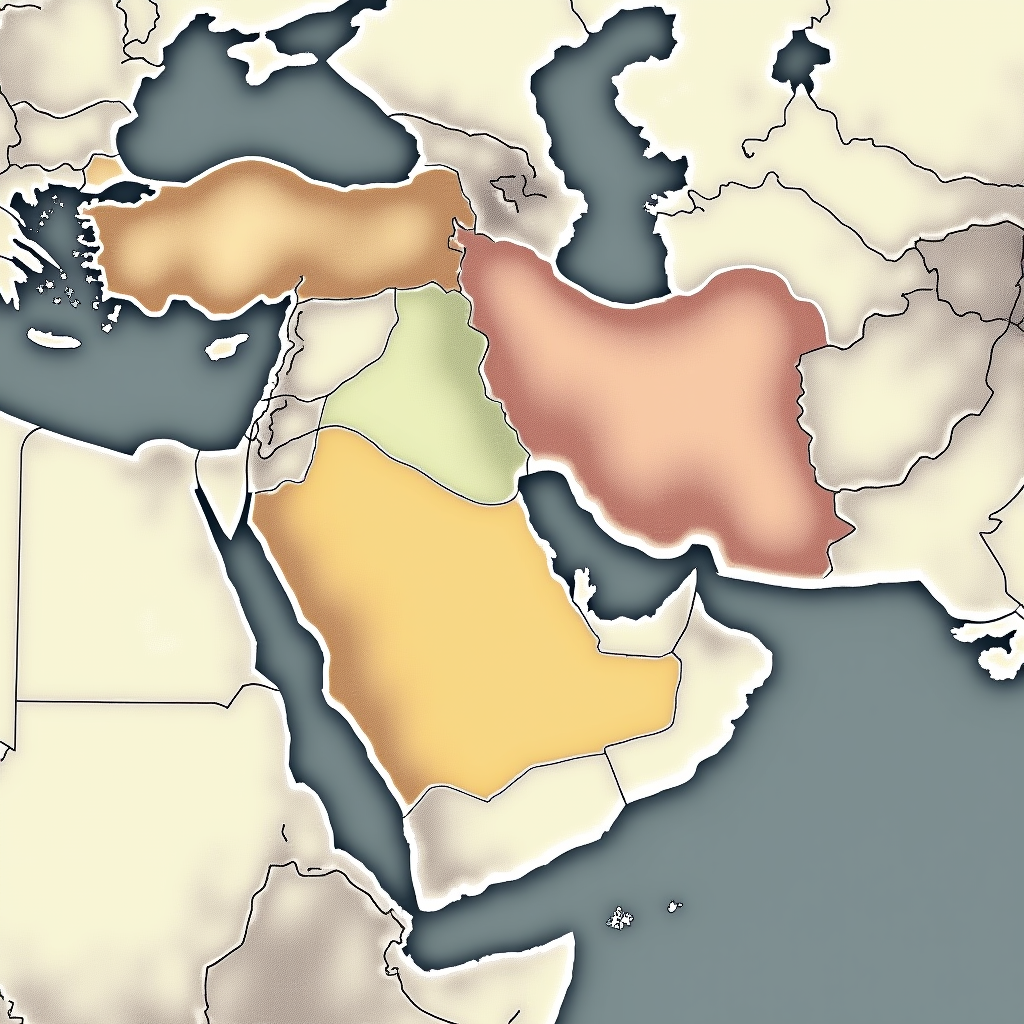The ongoing tensions between Israel and Iran, intertwined with the broader Middle East conflicts involving groups like Hamas, have captured global attention. In a recent episode of the Ask A Christian podcast, host Nate briefly touched on these issues, noting, “We have Israel bombing Iran and vice versa.” This statement reflects the complex and volatile situation in the region. Let’s dive into an overview of the Israel-Iran conflict, its roots, and its implications, while addressing the broader dynamics involving Hamas and other actors.
Historical Context of Israel-Iran Tensions
The rivalry between Israel and Iran dates back to the 1979 Iranian Revolution, which transformed Iran into an Islamic Republic hostile to Western-aligned nations, including Israel. Prior to 1979, the two nations maintained relatively amicable relations under the Shah’s regime. However, the rise of Ayatollah Khomeini shifted Iran’s foreign policy toward supporting anti-Israel groups like Hezbollah and, later, Hamas. This proxy warfare has been a hallmark of their conflict, with Iran funding and arming groups to challenge Israel’s security.
Israel, in turn, has conducted covert operations and airstrikes to curb Iran’s influence, particularly in Syria and Lebanon, where Iran-backed militias operate. The podcast’s mention of mutual bombings specifically refers to the events over the past weekend, where Israel launched a preemptive attack killing several key leadership members of the Iranian regime, prompting Iran’s retaliatory actions.
The Role of Hamas and Regional Dynamics
Hamas, a Palestinian militant group controlling Gaza, is a key player in this conflict. Supported by Iran, Hamas has engaged in repeated clashes with Israel, including rocket attacks and ground incursions. The October 2023 attack by Hamas on Israel, which killed over 1,200 people, sparked the latest Gaza war, leading to significant casualties and a humanitarian crisis. Israel’s response has drawn international scrutiny, with debates over proportionality and civilian safety.
The podcast also hints at broader regional unrest, with Nate mentioning “Jews fighting Muslims.” While this oversimplifies the conflict, it reflects the sectarian and ideological divides exploited by various actors. For instance, Iran, a Shia-majority nation, aligns with groups like Hezbollah, while Sunni-majority nations like Saudi Arabia have historically opposed Iran’s expansionism, though recent diplomatic thaw complicates this picture.
Current Developments and Global Implications
As of June 2025, the Israel-Iran conflict remains dynamic. Israel’s airstrikes on Iranian targets in Syria and alleged cyberattacks on Iran’s infrastructure continue, while Iran’s nuclear program raises concerns about potential escalation. The United States, a key ally of Israel, plays a significant role, with recent sanctions and military support shaping the conflict’s trajectory.
The podcast’s reference to the Israel-Iran conflict reflects the overwhelming war fatigue many feel, with constant bombings and fighting making it difficult to track every development. In the Ask A Christian podcast, host Nate provides a brief history and overview, specifically highlighting the most recent escalation where Israel launched a preemptive attack killing key Iranian regime leaders. This focus aims to ground listeners in current events while addressing the broader context of the conflict.
A Christian Perspective on Conflict
From a Christian viewpoint, the Israel-Iran conflict prompts reflection on peace, justice, and God’s sovereignty. One caller challenged the podcast, asserting that the Bible commands Christians to support Israel. However, as discussed in the podcast, the Bible’s references to Israel, particularly in relation to Abraham and his descendants (Genesis 12:3), do not equate to a mandate to support the modern, largely secular Israeli government of 2025. This government includes diverse groups, including Muslims and atheists, and is not synonymous with the biblical covenant with Abraham’s descendants. The podcast clarifies that Christians are not commanded to uncritically prop up a secular state, though they are cautioned against cursing or harming Abraham’s descendants—whether understood as observant Jews or Christians spiritually grafted into God’s covenant (Romans 11:17-24).
Despite this distinction, the podcast participants express general support for Israel, driven by historical and geopolitical considerations rather than a biblical imperative. Engaging with these issues requires discernment, balancing biblical truths like loving all people, including enemies (Matthew 5:44), with avoiding partisan narratives. For deeper study, resources like ChristianBook.com offer books on eschatology and Middle East prophecy to explore the spiritual dimensions of these events.
Conclusion
The Israel-Iran conflict, intertwined with Hamas and regional powers, is a complex issue with deep historical and spiritual significance. The Ask A Christian podcast addresses it thoughtfully, acknowledging war fatigue while clarifying biblical perspectives on Israel. Christians are called to pray for peace (1 Timothy 2:1-2), study scripture, and seek understanding. Listen to the full episode here and visit Ask A Christian for more faith-based resources.

